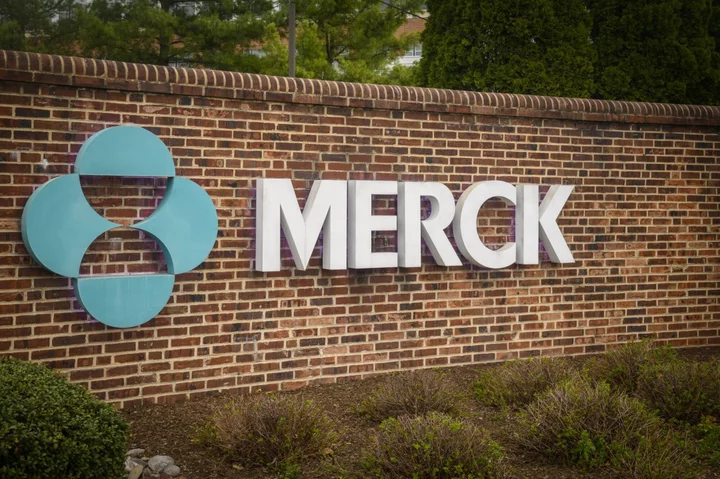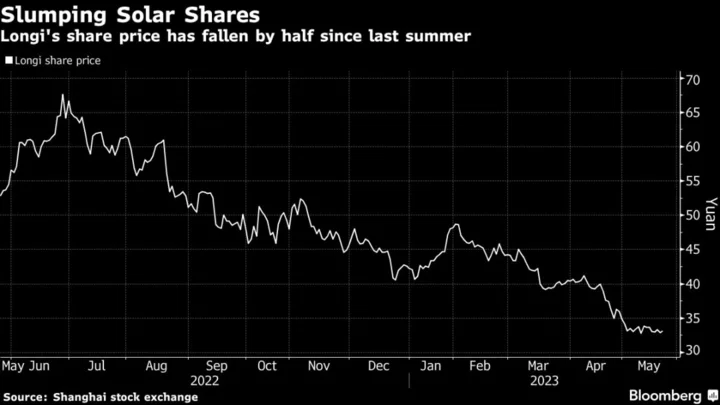Merck & Co.’s Keytruda and Gardasil soundly beat analysts’ estimates for quarterly sales, driving the company’s annual revenue forecast higher even as costs for its acquisition of Prometheus Biosciences Inc. led to a cut in its annual earnings outlook.
Second-quarter sales of the blockbuster cancer drug Keytruda rose 19% from a year earlier to $6.27 billion, Merck said Tuesday in a statement, compared with analysts’ expectations of $5.8 billion. Gardasil, a shot that prevents HPV, saw a 47% increase in quarterly sales, primarily due to increased demand in China. The drugmaker raised its full-year sales guidance to $58.6 billion to $59.6 billion from the earlier range that topped out at $58.9 billion.
Merck has profited from widespread use of Keytruda, which has been consistently gaining use in a variety of cancers since it reached the US market nine years ago. Company scientists have been working to develop a self-administered version of the drug that would make it easier for patients to use, while potentially extending its patent life.
Merck bought Prometheus, a developer of drugs for autoimmune diseases, as part of its efforts to replenish its pipeline of new drugs before Keytruda loses its market exclusivity. Prometheus’s leading clinical candidate, a treatment for ulcerative colitis, will enter a late-stage trial in the fourth quarter, a Merck spokesperson said in an interview. The study had previously been set to start either late this year or early next year.
Merck also applied for US approval of sotatercept, a treatment for pulmonary arterial hypertension, according to the statement. The product is expected to eventually help counteract Keytruda’s patent cliff.
Merck said in June that it would take a charge of $4 a share for the Prometheus purchase, writing off the research and development acquired according to accounting rules. On Tuesday, the company cut its annual forecast for earnings excluding some items to a range of $2.95 to $3.05 a share, less than half its earlier prediction of $6.88 to $7.
The company posted a quarterly loss excluding some items of $2.06 a share — also because of the costs of Prometheus. That was narrower than the $2.20 loss expected by Wall Street.
Second-quarter revenue reached $15 billion, outpacing analysts’ average expectation of $14.5 billion. Gardasil sales of $2.46 billion beat estimates of $1.98 billion.









